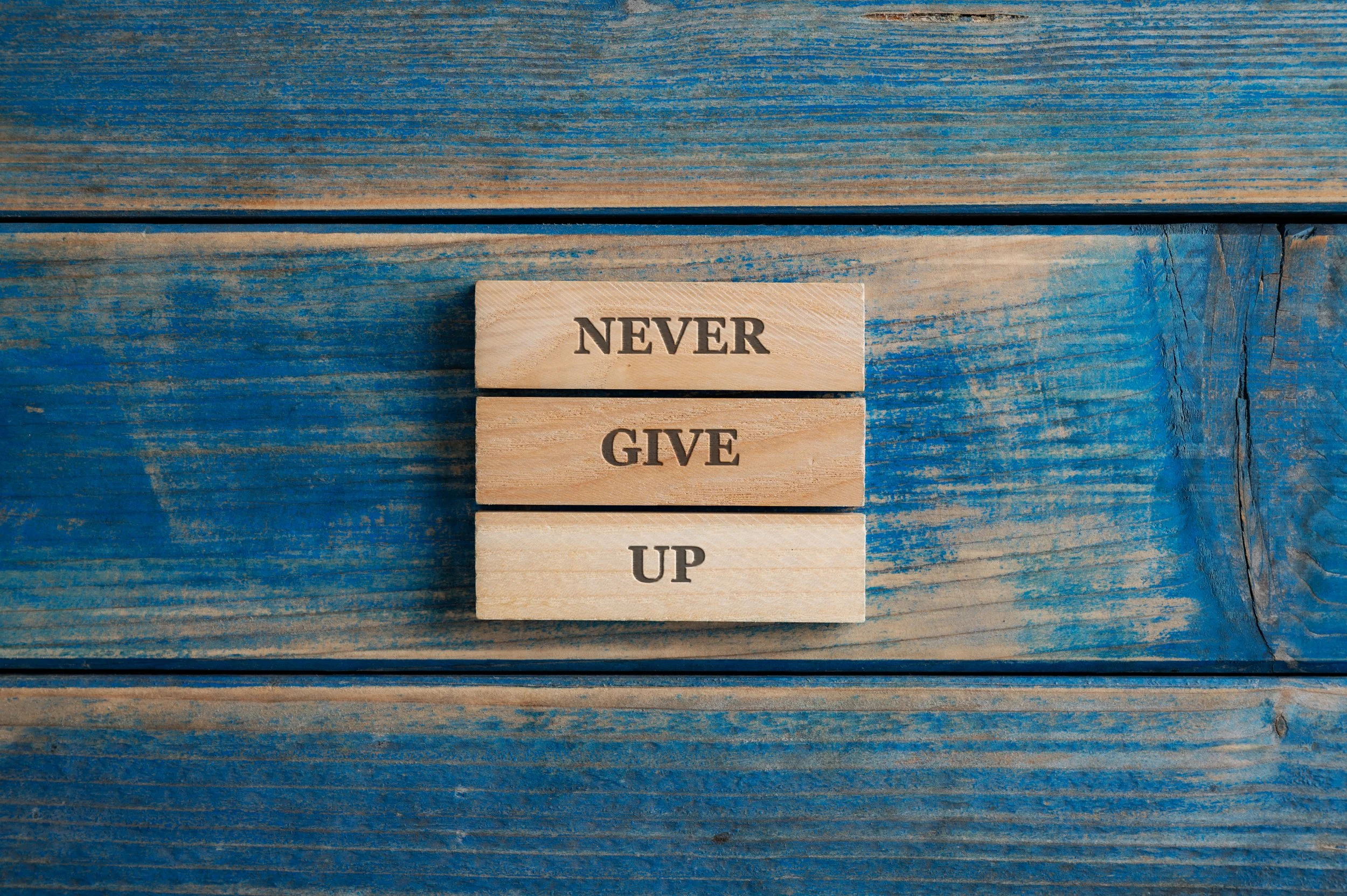The Art of Being Fully Present: A Key to Self-Awareness and Personal Growth
Discover the true meaning of being fully present and how it can transform your life, enhancing self-awareness and personal growth. Learn practical tips for cultivating presence and unlocking your full potential.
Are you struggling to find meaning, connection, and fulfillment in your day-to-day life? The key to unlocking self-awareness and personal growth may be simpler than you think: being fully present. In our fast-paced world, it's easy to lose touch with ourselves and others. In this post, we'll explore the true meaning of presence, why it's essential for self-awareness and personal growth, and practical ways you can cultivate it in your daily life.
What Does It Mean to Be Fully Present?
Being fully present means being completely engaged and attentive to the present moment without distraction or judgment. It involves letting go of past regrets and future worries, allowing yourself to connect deeply with yourself, others, and your surroundings. When you're fully present, you're not only aware of your thoughts, feelings, and sensations, but you're also open and receptive to the experiences of others.
The Benefits of Being Present
Improved self-awareness: Presence allows you to observe your thoughts and emotions without judgment, leading to a better understanding of yourself and your inner workings. This self-awareness is crucial for personal growth and self-improvement.
Enhanced relationships: By being fully present with others, you're able to genuinely connect, listen, and empathize, leading to deeper and more fulfilling relationships.
Reduced stress and anxiety: Letting go of past and future concerns can help lower stress levels and promote a sense of calm and well-being.
Increased creativity and problem-solving skills: Presence promotes a clear, focused mind, enabling you to tap into your creative potential and effectively address challenges.
Greater appreciation and enjoyment of life: Being present allows you to savor and appreciate the simple pleasures in life, leading to increased happiness and contentment.
Cultivating Presence: Tips and Techniques
Mindfulness meditation: Practicing mindfulness meditation regularly can help train your mind to be more present. Focus on your breath, and when your mind wanders, gently bring it back to the present moment.
Minimize distractions: Create an environment that encourages presence by limiting distractions, such as turning off your phone or setting specific times for checking emails and social media.
Practice active listening: When engaging with others, truly listen and focus on what they're saying without interrupting or mentally preparing your response.
Slow down: Rushing through tasks and experiences prevents you from fully engaging with them. Take your time and savor each moment.
Body awareness: Regularly check in with your body and notice any sensations, tension, or discomfort. This practice helps ground you in the present moment.
Being fully present is a continuous journey, not a destination. As you cultivate presence in your daily life, you'll find that self-awareness and personal growth flourish, allowing you to unlock your full potential and experience life more fully. Start today by taking small steps to be more present, and watch as your life transforms in ways you never thought possible.
Unlocking the Secret to Success: Why High Achievers Seek Feedback
Failure is often seen as a negative experience, something to be avoided at all costs. However, successful people understand that failure is not the end – it’s simply a part of the journey. They embrace failure, knowing that it can provide valuable insights and feedback to help them achieve greater success. In this blog post, we’ve explored why successful people choose to turn failure into feedback and how you can adopt the same mindset. By seeing failure as an opportunity to learn and grow, and using feedback to make changes and improve, you too can achieve greater success in your personal and professional life. Remember, failure is not a reason to give up – it’s simply a reason to try again with renewed determination.
In the world of business, success is often defined by one’s ability to win, achieve, and come out on top. However, what many people fail to realize is that success is rarely achieved without failure. In fact, some of the most successful people in history have experienced failure numerous times before achieving success. But what sets them apart is their ability to turn failure into feedback.
Instead of dwelling on their mistakes and giving up, successful people use failure as an opportunity to learn, grow, and improve. In this blog post, we’ll explore why successful people choose to turn failure into feedback, and how you can do the same.
Why is feedback important?
Before we dive into the benefits of turning failure into feedback, let’s first explore the importance of feedback in general. Feedback is simply information about how we’re doing, and it can come in many different forms – from constructive criticism to positive reinforcement.
Feedback is essential for growth and improvement. It allows us to identify our strengths and weaknesses, and to learn from our mistakes. Without feedback, we can easily become complacent and stagnant in our personal and professional lives.
In fact, research has shown that people who are open to feedback are more likely to achieve their goals and be successful in their careers. They’re also better at building relationships, managing conflict, and adapting to change.
Why successful people turn failure into feedback
So, why do successful people choose to turn failure into feedback? Here are a few reasons:
They see failure as an opportunity to learn
Successful people understand that failure is not the end – it’s simply a part of the journey. Instead of dwelling on their mistakes, they use failure as an opportunity to learn and grow. They analyze what went wrong, identify their mistakes, and use that information to do better in the future.
For example, if a business venture fails, a successful entrepreneur will analyze what went wrong – was it a lack of market research, poor execution, or something else? By understanding the root cause of the failure, they can make adjustments and try again with a greater chance of success.
They use failure as a motivator
Failure can be demotivating, but successful people use it as a driving force. They refuse to let failure define them, and instead use it as motivation to do better. They see failure as a challenge, and work harder to overcome it.
For example, if an athlete fails to win a competition, they may use that failure as motivation to train harder, improve their technique, and come back stronger next time.
They understand that success is not linear
Successful people understand that success is not a straight line – it’s full of twists, turns, and setbacks. They know that failure is simply a part of the process, and that it’s necessary to experience failure in order to achieve success.
They refuse to give up
Perhaps the most important reason why successful people turn failure into feedback is that they refuse to give up. They know that success is not easy, and that it requires hard work, dedication, and perseverance. They understand that failure is not a reason to quit – it’s simply a reason to try again.
How to turn failure into feedback
Now that we’ve explored why successful people choose to turn failure into feedback, let’s talk about how you can do the same. Here are a few tips:
Reframe your mindset
Instead of seeing failure as a negative experience, try to reframe your mindset and see it as an opportunity to learn and grow. Ask yourself what you can learn from the experience, and how you can use that information to do better in the future.
Analyze what went wrong
Take a step back and analyze what went wrong. Was it a lack of preparation, poor execution, or something else? By understanding the root cause of the failure, you can make adjustments and try again with a greater chance of success.
Ask for feedback
Don’t be afraid to ask for feedback from others. Whether it’s from a boss, colleague, or friend, getting an outside perspective can provide valuable insights and help you identify areas for improvement.
Use the feedback to make changes
Once you’ve received feedback, use it to make changes and improve. Don’t just ignore the feedback or dismiss it – take it seriously and use it to your advantage.
Don’t give up
Above all, remember that failure is not a reason to give up. It’s simply a reason to try again. If you experience failure, take a deep breath, analyze what went wrong, and use that information to try again with renewed determination.
Successful people are not immune to failure. In fact, they often experience failure more frequently than others. However, what sets them apart is their ability to turn failure into feedback. By seeing failure as an opportunity to learn and grow, successful people use it as a driving force to achieve greater success.
If you want to be successful in your personal and professional life, it’s important to adopt the same mindset. Reframe your thinking, analyze what went wrong, ask for feedback, and use that feedback to make changes and improve. And above all, don’t give up – remember that failure is simply a part of the journey, and that it’s necessary to experience failure in order to achieve success.
The #1 Success Habit - NEVER GIVE UP
Why do successful people value feedback so much? Well, the truth is that feedback is essential for growth and improvement. Without it, we can easily become complacent and stagnant in our personal and professional lives.
In this post, we'll explore the powerful message of "never giving up" and how it's not just about achieving specific results. We'll delve into the idea that success is not solely defined by accomplishments or measurable outcomes, but rather it's about perseverance, resilience, and learning from failure.
Success is not a destination, it is a journey. It requires determination, perseverance, and most importantly, the #1 success habit - never give up. If you want to achieve your goals and live a successful life, you must develop the habit of never giving up.
Many successful people have faced numerous obstacles and failures before achieving their goals. Thomas Edison failed thousands of times before inventing the light bulb. Walt Disney was fired from his job for lacking creativity before creating Mickey Mouse and Disneyland. J.K. Rowling's manuscript for Harry Potter was rejected by numerous publishers before it was finally accepted.
What sets these successful people apart is that they never gave up. They persisted through failures and setbacks, learned from their mistakes, and kept working towards their goals.
The road to success is not easy, and there will be times when you feel like giving up. However, it is important to remember that every failure and setback is an opportunity to learn and grow. You must embrace these challenges and use them as stepping stones towards success.
To develop the habit of never giving up, you must have a strong sense of purpose and passion for what you are doing. You must be willing to put in the hard work, and have the resilience to keep going even when things get tough.
One way to cultivate this habit is to break down your goals into smaller, manageable tasks. This will help you stay motivated and focused, and will also give you a sense of accomplishment as you complete each task.
Another important factor is to surround yourself with positive and supportive people. These individuals can provide encouragement and support during difficult times, and can help keep you motivated and on track towards your goals.
If you want to achieve your goals and live a successful life, you must cultivate this habit and persevere through challenges and setbacks. Remember, every failure is an opportunity to learn and grow, and with determination and resilience, you can overcome any obstacle and achieve your dreams.
Unlock Your Potential: What's Your Unique Personal Growth Archetype?
How well do you know your weaknesses? How well are you nurturing your strengths? What areas of personal growth should you be working on to maximize your strengths according to your unique personality?
Take our quiz to reveal your hidden strengths and areas of growth in order to understand the unique blend of qualities that make you YOU. You'll receive tips and actionable advice to lead you on your unique path of fulfillment and success!
Take the Personal Growth Archetype Quiz








